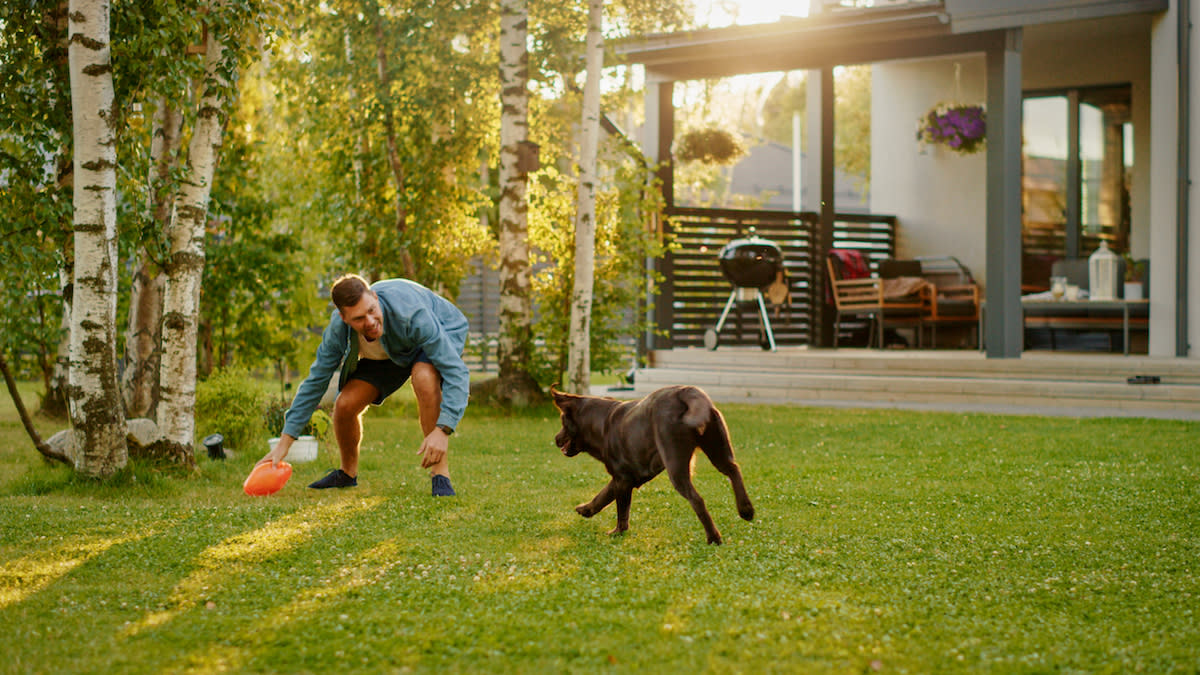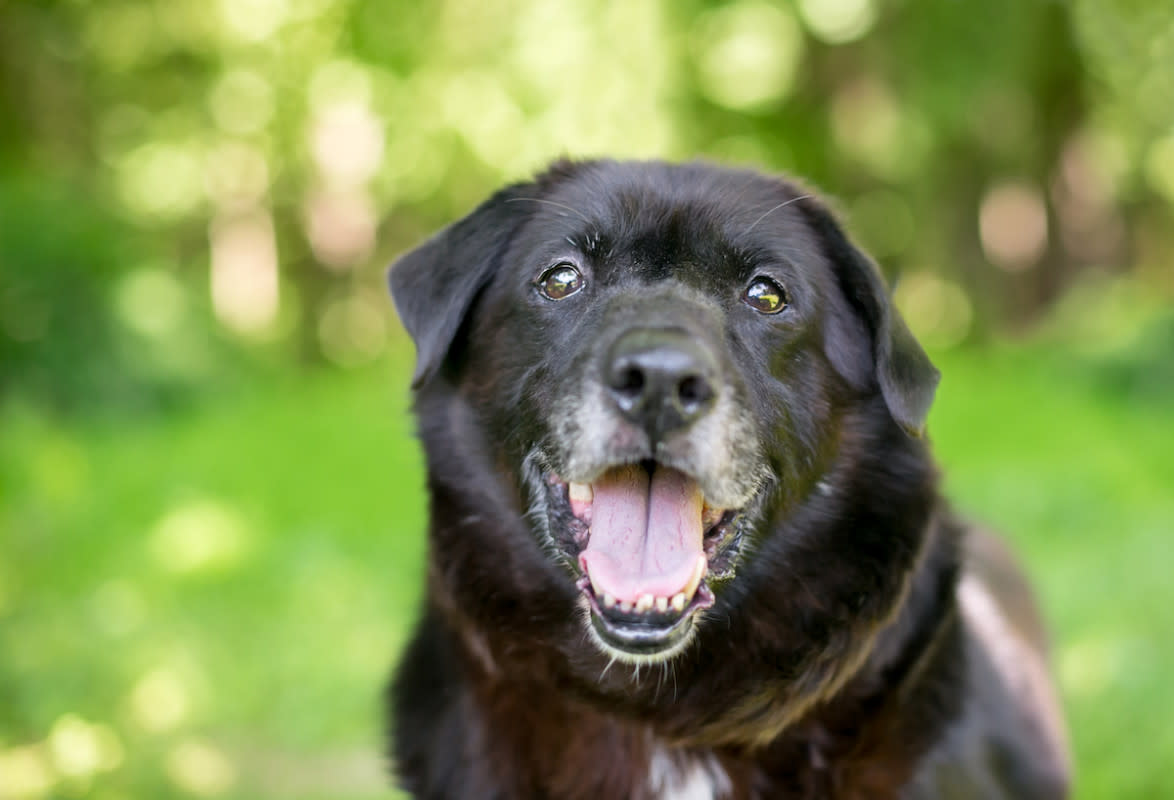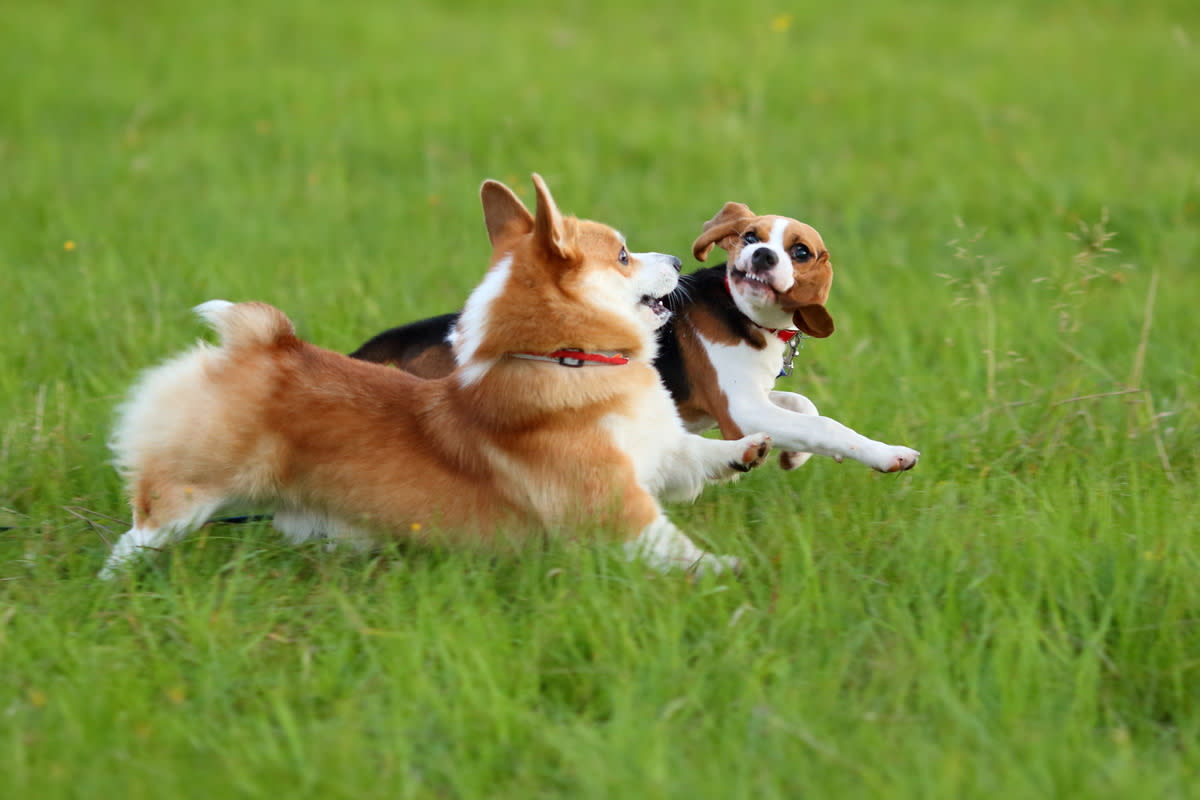6 Common Mistakes Even the Most Devoted Dog Owners Make
As dog parents, we often believe we're doing our best for our fur babies. We teach them not to jump on guests, reprimand them for barking at delivery drivers, and distract them when they start chewing on the remote control.
However, even with the best intentions, we might unintentionally do our dogs a disservice by making assumptions about their behavior that aren’t necessarily accurate and training them based on those misconceptions.

sergey kolesnikov/Shutterstock
According to one study, more than 90% of dogs jump on household members at some point in their lives, and our loving greetings might reinforce these problem behaviors. These insights are part of a collection of eye-opening dog training tips that might surprise even the most attentive pet parents.
TrustedHousesitters, the leading pet sitting platform, has partnered with Scott Salant, a seasoned pet trainer from Paws Crossed Shelter, to expose the surprising mistakes even devoted dog owners make. Their insights offer innovative solutions for pet owners and sitters looking to improve their furry friends’ behavior.
Ignore breed stereotypes

MichaelCoelho/Shutterstock
Salant challenges the notion that certain breeds are inherently untrainable. He explains, “I don’t pay much attention to a dog’s breed, as there is so much variation.” Instead, Salant says he focuses on individual personality and motivation.
“For some, it’s food. For others, it might be toys or the chance to play. For some dogs, it could be just getting pets and attention. A hyper dog might need their training sessions kept short, while those with more focus could thrive with longer sessions,” says Salant.
Tire them out for better training

Gorodenkoff/Shutterstock
A well-exercised dog often learns better than an alert and energetic one. Salant advises, “A dog that hasn’t had any exercise is more difficult to train as the focus may not be there. Burning off some of the energy before starting a training session is a good idea.”
Old dogs CAN learn new tricks

Shutterstock/Mary Swift
It’s a common misconception that senior dogs can’t learn new behaviors, but Salant challenges this belief. He emphasizes that age isn’t a barrier to learning, just a factor to consider in your approach.
“No matter the age, our dogs are always learning,” Salant explains. “Sometimes a little more patience is needed as an older dog may have lots of practice at doing the opposite behavior than what you are asking of them, but with a little time and effort, they will learn what you want them to do.”
When training older dogs, be prepared to break tasks down into smaller, manageable steps. Focus on gentle, low-impact activities, and positive reinforcement.
Unlock rescue dogs’ full potential
Rescue dogs aren’t a lost cause when it comes to training. Salant explains, “The only difference between a rescue dog and a young puppy is that the rescue dog may have some undesirable behaviors they’ve been practicing.”
He advises, “When working with a dog with a troubled past, the key is to go slow, be extra patient and most importantly, find a way to gain the dog’s trust. Usually, lots of good yummy treats go a long way toward forming a bond with them, but it can be whatever makes that dog feel safe, comfortable, and ultimately happy.”
Related: Bernese Mountain Dog's Tutorial on 'How to Train Humans' Is So Spot-On
Calm homecomings lead to calmer dogs
Contrary to popular belief, an enthusiastic greeting when returning home can lead to problematic behaviors. Salant explains, “This can make the pet get too excited, leading to behaviors like the dog jumping up. It could also make pets more anxious about their owners leaving them alone.” As dogs can pick up on human emotion, Salant recommends entering calmly and waiting a few minutes before giving attention.
Lifelong socialization is crucial

Shutterstock - Anna Molcharenko
Many owners believe socialization is only important for puppies, but Salant warns that this isn’t the case. “A phobia can develop at any age, which is why socialization is so important,” he explains. “The more stimuli we expose our pets to, the better able they are to cope with new stressors.”
Continued positive experiences throughout a dog’s life can prevent the development of phobias and help dogs adapt to new situations more easily.
While the above tips provide an excellent starting point for training, Salant offers reassurance to owners who worry about perfect training techniques: “People always think you have to be perfect, and this makes them put way too much pressure on themselves. As long as you are consistent, the dogs will learn and figure out what you want them to do.”
For more expert advice on pet care and to learn about pet-sitting opportunities, visit https://www.trustedhousesitters.com/
